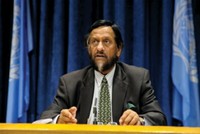Advertisement
Grab your lab coat. Let's get started
Welcome!
Welcome!
Create an account below to get 6 C&EN articles per month, receive newsletters and more - all free.
It seems this is your first time logging in online. Please enter the following information to continue.
As an ACS member you automatically get access to this site. All we need is few more details to create your reading experience.
Not you? Sign in with a different account.
Not you? Sign in with a different account.
ERROR 1
ERROR 1
ERROR 2
ERROR 2
ERROR 2
ERROR 2
ERROR 2
Password and Confirm password must match.
If you have an ACS member number, please enter it here so we can link this account to your membership. (optional)
ERROR 2
ACS values your privacy. By submitting your information, you are gaining access to C&EN and subscribing to our weekly newsletter. We use the information you provide to make your reading experience better, and we will never sell your data to third party members.
Policy
Science Academies Recommend Changes For Climate Panel
Climate Change: Review focuses on panel's procedures, calls for regular leadership changes
by Cheryl Hogue
August 30, 2010
The Intergovernmental Panel on Climate Change (IPCC) needs changes at the top, concludes a review released on Aug. 30 by a coalition of national scientific academies.
The chairmen of IPCC and of the panel's working groups should only serve in these roles for a single scientific assessment, says the review by the InterAcademy Council (IAC), the coalition of science academies.
IPCC's assessments take years to compile. Since it was founded in 1988, the panel has produced four assessments of climate change science, with the most recent completed in 2007. The fifth assessment is expected in 2013-14.
A regular change-over at the top will help ensure a variety of perspectives and a fresh approach to IPCC assessments, says Harold T. Shapiro, chairman of the IAC committee that prepared the report. Shapiro is president emeritus and professor of economics and public affairs at Princeton University.
But IPCC Chairman Rajendra K. Pachauri, who oversaw the 2007 assessment, is not planning to step down in response to the IAC review. Pachauri says he is the "elected servant of the IPCC" who was tapped to complete the panel's upcoming assessment.
Pachauri points out that he serves at the discretion of the 194 countries that make up panel and that they can make changes to IPCC leadership if they see fit.
The IAC's recommendations focus on IPCC's procedures, not its scientific conclusions. U.N. Secretary General Ban Ki-moon and Pachauri asked for the review earlier this year (C&EN, March 15, page 13). Their request came in the wake of scientific criticism of IPCC scientific integrity and a mistake in its 2007 report that incorrectly stated that Himalayan glaciers would melt away by 2035.
These events dented the reputation of the IPCC, Shapiro says.
In its report, the IAC concludes that the climate panel's process for detecting and correcting errors "is thorough." However, IPCC needs stronger enforcement of its review process to minimize errors. Also, "Review editors should also ensure that genuine controversies are reflected in the report and be satisfied that due consideration was given to properly documented alternative views," IAC says.
In addition, IPCC needs to adopt a rigorous conflict of interest policy for its senior leaders, authors, review editors, and staff responsible for the content of its reports, IAC says. At the same time, the panel needs to be as public as possible about the criteria it uses to select participants and scientific information for its assessments, the review council says.
IPCC needs more specific guidelines on appropriate use of "gray literature" from unpublished or non-peer reviewed sources, such as conference proceedings and technical reports, IAC continues. This information is often relevant and appropriate to use in assessments, the review council says, although its use has been controversial.
The countries that are members of the IPCC will discuss the IAC report at an Oct. 11-14 meeting in Busan, South Korea. Only a plenary gathering of this sort can determine which of the recommendations the IPCC will adopt and when.




Join the conversation
Contact the reporter
Submit a Letter to the Editor for publication
Engage with us on Twitter